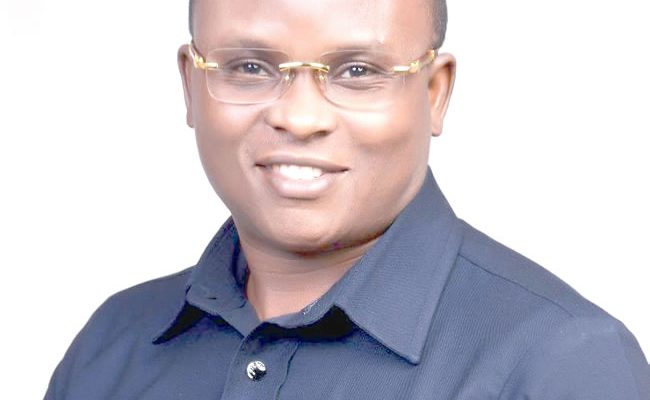AS part of its campaign to curb irregular migration among Nigerian youths, Dr Chibuzor Ephraim Onyema, founder of the Blacks Ancestral Native Communities (BANC) Foundation, has called on the Federal Government to adopt bilateral labour agreements as a critical solution.
The foundation, known for its commitment to reducing irregular migration, sees the pursuit of these agreements with foreign countries as part of practical, long-term strategy to creating legal avenues for skilled Nigerians to work abroad.
Irregular migration, characterised by the movement of individuals through unauthorised channels or to countries where they lack proper documentation, has become a pressing issue in Nigeria.

Over the years, countless Nigerian youths have sought greener pastures abroad, often risking dangerous journeys through desert routes or perilous sea crossings. These journeys frequently result in fatalities, human trafficking, or inhumane conditions in detention centres.
According to Dr Onyema, addressing irregular migration requires a multifaceted approach.
“Irregular migration needs to be tackled from all angles. The traditional method of border enforcement and deportation is not enough to curb this growing issue. We must focus on providing legal pathways for migration and bilateral labour agreements are a crucial part of this strategy,” he said.
The labour agreements he proposes would allow the Nigerian government to collaborate with other nations to send skilled workers abroad through official, legal channels. This would ensure that young Nigerians, who are often driven to seek opportunities outside the country due to high unemployment rates, can access work legally and safely.

Bilateral labour agreements are formal arrangements between two countries, often designed to address specific labour needs in one country by supplying workers from another. These agreements typically cover areas such as the protection of migrant workers’ rights, terms of employment and the mutual benefits for both the sending and receiving countries.
For Nigeria, these agreements could be instrumental in reducing the pressure that unemployment places on its youth, thereby diminishing the allure of irregular migration.
Dr Onyema explained that by providing legitimate opportunities for skilled Nigerian workers, the government could address one of the key factors driving irregular migration.
“Our youth are resourceful and capable. Many have technical skills, trades, and professional expertise that are in demand in other countries. What they need is a safe and structured pathway to access these opportunities and bilateral labour agreements can provide that,” he noted.
He also pointed out that such agreements would ensure the protection and fair treatment of Nigerian workers abroad. “It is not just about finding jobs; it is about ensuring that our citizens are respected, that their rights are protected and that they are given opportunities to grow professionally in their host countries,” Onyema added.
The BANC Foundation has long been at the forefront of efforts to reduce irregular migration among Nigerians. With a focus on providing solutions that address the root causes of migration, BANC collaborates with various stakeholders, including government agencies, international organisations and local communities to create awareness and develop initiatives that aim to keep young Nigerians from resorting to dangerous and illegal migration routes.
“Our mission at BANC is to reduce the prevalence of irregular migration to the barest minimum,” said Onyema. “We are dedicated to finding practical solutions and we believe that labour agreements can play a major role in that process.”
BANC also emphasised the importance of public awareness campaigns to educate young Nigerians about the dangers of irregular migration. Many of these campaigns focus on providing accurate information about the challenges migrants face when they leave Nigeria through illegal routes, such as the risk of exploitation, imprisonment, or even death.
Additionally, BANC is committed to working with government agencies to develop and implement policies that provide economic opportunities for young Nigerians within the country, in an effort to reduce the push factors that drive them to migrate irregularly.
Onyema highlighted that the government must address issues such as unemployment and lack of infrastructure to create a more conducive environment for youth development.
In his call to action, Dr Onyema stressed that the Nigerian government must take a leading role in pursuing these bilateral labour agreements. “This is not something that can be achieved by one organisation alone. It requires a coordinated effort between the government and stakeholders in both the private and public sectors,” he said.
Onyema believes that the government should actively engage with countries that have labour shortages or demand for skilled workers and negotiate agreements that would benefit both nations.
He also stressed that these agreements should include measures to protect Nigerian workers abroad, ensuring they have access to fair wages, social security benefits and legal protections in their host countries.
Furthermore, he noted that such agreements would improve Nigeria’s global image by showing that the country is taking proactive steps to manage its migration challenges responsibly. “It is about building a global reputation as a nation that produces a skilled, hardworking and valuable workforce,” he stated.
While bilateral labour agreements represent one potential solution to irregular migration, Dr Onyema emphasised the need for a holistic approach. He urged the government to continue to focus on education, job creation and youth empowerment as part of its broader strategy to address the root causes of migration.
“Migration is not inherently negative. It becomes problematic when it is irregular, unsafe and driven by desperation. By providing legal migration pathways and addressing the root causes at home, we can manage migration in a way that benefits both Nigeria and the countries that receive our workers,” he explained.
The BANC Foundation’s call for bilateral labour agreements highlights a crucial, yet often overlooked, aspect of tackling irregular migration in Nigeria. By pursuing such agreements, the Nigerian government can offer its skilled youth the opportunity to work legally and safely abroad, thereby reducing the risks associated with irregular migration.
As Dr Onyema and the BANC Foundation continue their advocacy efforts, it remains clear that a multifaceted, collaborative approach is essential to addressing this growing challenge.
“Labour agreements alone won’t solve the issue, but they are an important step forward. It is time we take action,” Onyema added.
READ ALSO: Independence Day: IGP Egbetokun orders water-tight security nationwide





